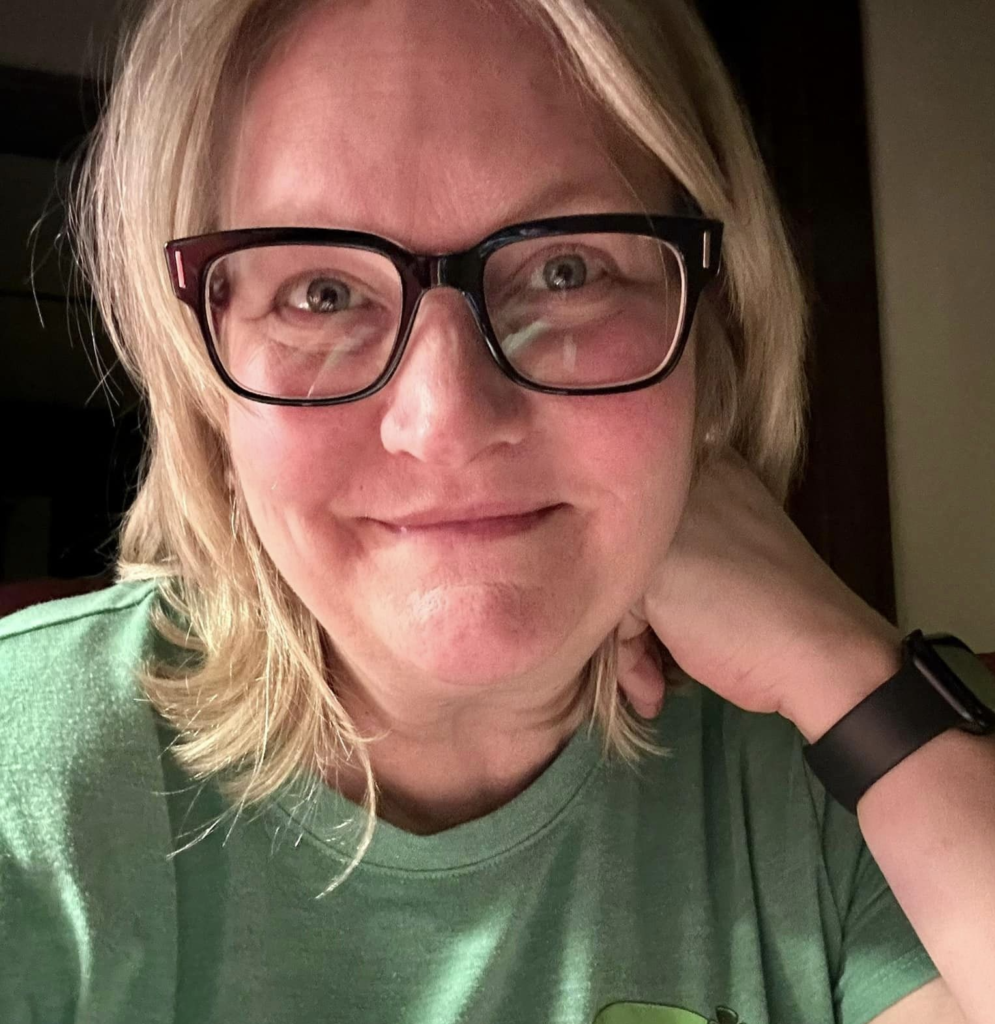Six months have passed since the family of Mooresville K9 Officer Jordan Sheldon raised concerns to town administrators about Jordan’s patrol vehicle having no spotlight when he was murdered during a routine traffic stop.
The vehicle is back in service now and, as of this week, is still without a spotlight, contradicting Mooresville Police Department policy and raising safety concerns for the officer to whom the vehicle was re-issued.
Jordan’s family is speaking out publicly now, vowing not to rest until the town enacts tangible changes and safeguards in an attempt to protect MPD officers and the citizens they are tasked with serving.
“We want to effect change in a positive way to honor Jordan,” said Carson Ledford, Jordan’s brother, in a recent one-on-one with the Scoop. “Jordan should be here to tell his story, but he’s not.
“Jordan would want his story told in a way that advances efforts to protect the people he worked with and the citizens he worked for,” Carson said. “Though it is very difficult for our family, we are mission-driven. The people who deserve a better, safer, more just working environment should have that, and if Jordan is the cause of that change, then those people who are deserving should be the beneficiaries of it.”
MPD “haves and have-nots”
Citing a lack of reliable backup on calls, inconsistent policy practices and missing/malfunctioning equipment to protect officers, Jordan repeatedly expressed concerns to friends and family about his safety while on duty at MPD.
“While we cannot say with statistical certainty that Jordan would be alive today had the police department created and maintained different policies, we feel that there is a chance he would be here under a different kind of leadership,” Jordan’s family wrote in a June 13 letter to the Town of Mooresville. “If nothing else, his chances would have been better.”
Jordan, for instance, voiced concerns about a malfunctioning button on his police vest – a button that could have released his canine partner, Ramon, from their patrol vehicle in the event of an emergency.
Though Mooresville administrators acknowledge that fellow officers recall Jordan talking about malfunctioning safety equipment, the town’s official response to the family was: “there is no documentation in our records that (Jordan) ever requested” a spotlight or that his vest button “be fixed or replaced.”
Carson replied: “The town has no official equipment-request process, so it’s unlikely there would be a paper trail even if Jordan made such a request. In this case, it’s unfortunately far too easy to call a dead man a liar.”
And when MPD officers request such repairs, it seems hit-or-miss if they’ll immediately be granted them. This, despite MPD having a logistics officer, Sgt. Jerry Spruill, whose sole job is to choose and order equipment/repairs to support the work and safety of officers.
– Most recently, one or more officers complained about tattered police-radio wires and were reportedly told they’d need to wait for repairs or replacements until the problem worsened.
– Until last summer, MPD detectives didn’t have police-radios in their cars at all – only handheld walkie-talkies. This, despite multiple requests by Capt. David Call, former head of the Criminal Investigations Division, to Spruill for the radios. One of Acting Chief Ron Campurciani’s first orders of business when he was hired last summer was to have police radios ordered for detectives’ cars.
– At least as of earlier this week, the car that had been issued to Jordan still isn’t equipped with a spotlight, which is considered standard safety equipment for patrol cars and costs as little as $200.
Meanwhile, Spruill –
who ordered Jordan’s car without a spotlight – used tax dollars to
grant himself a brand-new, unmarked Silverado pickup truck, his
second new vehicle since 2015. He added about $10,000 in upgrades,
including lights, a siren and radio, even though he doesn’t help with
traffic enforcement. The truck is essentially treated as a personal
vehicle, parked behind MPD during workdays.
Spruill also
scored then-Chief Williams and his then-command staff a fleet of new
Tahoes.
“Jordan thought it was in poor taste that the department leaders were in new vehicles when there are needs unmet by officers on the road,” reads the June 13 letter from Jordan’s family.
Added Carson: “It seems to be a common complaint that equipment is hard to get to the actual officers. Why, in a profession where tactics require tools, would there be such an issue with equipment?”
MPD policy on spotlights
MPD understands the value and importance of a spotlight, as evidenced in its own policy manual.
One policy addresses a spotlight’s tactical use: “At night, the spotlights should be focused on the driver’s side of the suspect vehicle.”
Another allows for cars to have either exterior spotlights or alley lights, but officers agree that exterior spotlights are strategically far more important than alley lights. Able to be manipulated by officers from inside their cars, spotlights, if needed, can temporarily interfere with motorists’ line of sight during a traffic stop: a potentially critical safety measure.
Alley lights, on the other hand, project at a set angle from the side of the car – not the front – and are unable to be manipulated or moved from inside the vehicle. An officer would have to pull directly beside a vehicle to shine alley lights into the interior – a potentially deadly move in the wrong situation. It seems there’s no viable alternative for police vehicles that is a true substitute for a traditional, external spotlight.
Mooresville frequently touts its police department’s national CALEA (Commission on Accreditation for Law Enforcement Agencies, Inc.) accreditation, which means the department’s policies are reviewed by law-enforcement experts to meet nationally accepted standards. MPD, in its policy manual, references the “CALEA Standard” regarding patrol-vehicle equipment. That national standard reads: “It is also recommended that patrol cars be equipped with a public address speaker, exterior spotlights and alley lights” (emphasis added).
One reason provided to Jordan’s family for his car being re-issued still without a spotlight: the officer driving it now works day shifts. But it’s dark in the early morning and growing dark earlier in the evenings right now – before day-shift ends.
“If an officer in that car works off-duty at night, they will need a spotlight,” Carson said. “No other light on a patrol car or on an officer’s duty belt performs the function that a mounted spotlight does.
“At what point do we finally assume that the town truly doesn’t care about officer safety, particularly when its actions compete with its own policies?” he asked. “With as much of a tax base as Mooresville has, why wouldn’t we go the extra mile – a $200 spotlight – to keep our officers and town safe?”
What’s a life worth?
What is the life of a law-enforcement officer worth in Mooresville?
“We have witnessed a real-life example of how a perfect storm cost someone their life,” said Carson. “What is the fail-safe if we get in this situation again? What has been put in place to make sure this doesn’t happen again?”
The answer is: unfortunately, not much.
“Ron Campurciani is doing things that he would do anyway because I believe him to be a good leader,” Carson said.
Soon after arriving in Mooresville, Campurciani enacted a policy requiring two officers to be dispatched to every call. Before that, it wasn’t standard for an officer to backup another during a traffic stop. It’s unclear how long Jordan was at the traffic stop alone before he was shot, but two minutes passed before the first police-backup arrived on-scene after he was murdered, according to an email from the town to his family. Private citizens stopped to try to help Jordan in the meantime and called to report an officer was down.
“The town, itself, is not showing an interest in fixing things,” Carson said.
Town fires whistleblower who suggested post-shooting probe
Just recently, the town fired Capt. Call, the whistleblower whose complaint about a hostile work environment at MPD led to the $225,000 department-wide probe. Results of the investigation led to Williams’ resignation and the demotion to night patrolmen of two-thirds of his command staff.
As far as Jordan’s family knows, Call was the only person to push internally for an investigation into Jordan’s murder. Though the idea apparently offended a few inside MPD, the purpose of such investigations – standard practice in law enforcement after an officer-involved shooting – is to review the circumstances that led to the event to:
- Identify potential loopholes or weaknesses in policy or practices that could lead to additional training or equipment to help protect officers’ lives.
- Share what is learned with the agency it happened in – and other law enforcement agencies, too – to hopefully prevent it from happening again or elsewhere. An after-action report is designed to address officer safety issues that can and need to be addressed.
- Protect the town and police department from liability.
Jordan’s family has been insisting that the town conduct such an investigation, but so far? Nothing.
“We are not asking for officers on his shift to be punished, but the command staff should be doing everything in their power to analyze that evening to prevent it from ever happening again, to the extent they’re able,” the family said in its June 13 letter to the town. “The department should be conducting a comprehensive, unbiased investigation of the night Jordan was killed.”
In a letter to Carson on Oct. 25, Town Manager Randy Hemann responded: “The SBI (State Bureau of Investigation) conducted the investigation surrounding the death of Jordan. Their comprehensive, unbiased investigation … show(s) that Jordan conducted a ‘textbook’ traffic stop. There was nothing he did that would call into question his training or experience.”
Jordan’s family isn’t satisfied with the town’s response, and the recent firing of Call has only exacerbated the family’s frustration. “Given that Mooresville has not had a fatal officer-involved shooting in 40+ years, it would seem prudent to have an outside agency conduct this investigation, as only they have the skillset to do it,” reads a family statement in response to Call’s termination. “(Call) called for an investigation the night Jordan was killed. We have asked for it repeatedly. Mooresville is refusing.
“(Call) approached the (then-)command staff about doing such an investigation,” the statement continued. “He was met with extremely negative responses and reprimanded for even bringing it up. Why would a department in such turmoil refuse to review the events of the night Jordan was killed?”
‘We are going to tell the truth and honor Jordan’
The family has suggested that the town implement a safe outlet for officers to voice complaints about missing/malfunctioning equipment, work culture and fears about safety.
“Jordan expressed significant and tangible safety concerns, particularly related to backup and being murdered in the line of duty,” said Carson. “For more than a year, he started sentences at family dinners with ‘If I die in the line of duty …’. He was never a person to be afraid and certainly was not a person to dramatize a situation.
“He was genuinely frightened because he knew he had no support at work,” Carson added. “We’ve brought those concerns to the town’s attention, and the town basically gave us no reply until the news was in touch.”
The family, in its June 13 letter, encouraged the town to adopt “a failsafe that when following the chain of command doesn’t work, there is another option without repercussions to the officers.”
Bypassing chain of command and taking concerns to, for instance, members of Mooresville’s board of commissioners is currently a violation of town policy: another reason the town used for terminating Call. In other words, an employee can be fired if s/he goes over the police chief, even if the employee’s concern is the police chief.
“We suggested (to the town) five action items, one of them being to create an anonymous platform – a survey or place to send comments etc. – for officers to express their concerns, whether it be about safety or other things,” Carson said.
The town said no.
In an email to Carson, Hemann wrote: “We do not believe an anonymous platform is the proper way for officers to express concerns.”
Hemann went on to assure Jordan’s family that Campurciani has changed the process of how policies and policy-concerns are shared with town personnel. “Any policy changes or updates are communicated via email with all MPD personnel, who are then given a specified time to respond with any concerns through their chain of command or directly to (the) chief of police,” Hemann wrote.
Said Carson: “Ron Campurciani is set to leave this month (although he’s in the running for the permanent position). If another chief comes in and runs the department poorly, what will prevent another murder from happening if officers feel unsafe and the chain of command fails them?
“The unwillingness of the town to put aside its ego and work to create more failsafe changes is egregious; I have zero faith the town is going to do the right thing,” Carson said. “Does that sound harsh? Well, someone was murdered – it’s become harsh. Our lives have become harsh. What happened to Jordan was harsh. If that’s portrayed as combative, that’s just what people are going to have to think.
“We are going to tell the truth and honor Jordan.”





